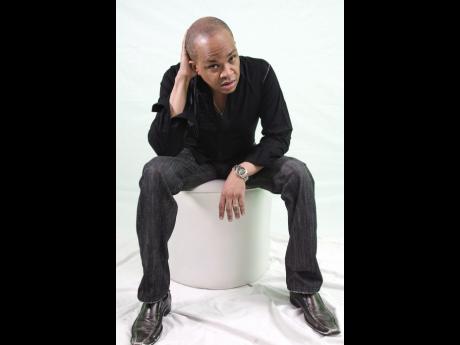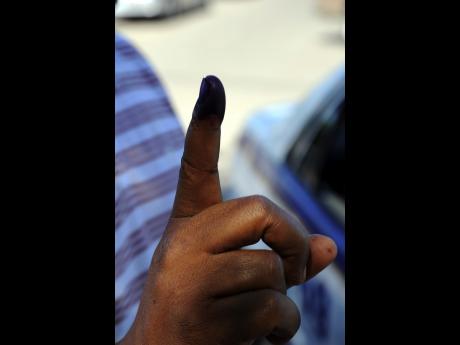Vote or shut up!
Jamaica was granted full adult suffrage on November 20, 1944. Before that, voting was restricted to men, and only those possessing certain amounts of property or wealth.
Today, Jamaican men and women who have attained the age of 18 years, regardless of race or social class, have the right to vote. But as another election approaches, the voter apathy in this country is palpable. Disappointment and disgust with, and disengagement from, the Jamaica Labour Party (JLP) and the People's National Party (PNP) are probably at an all-time high.
I recently conducted a survey, and asked 70 consecutive patients, aged 23 to 54, who called or turned up at my practice, to answer two simple questions:
1) Have you ever voted in a general election?
2) Do you plan to vote in the next election?
Of the 70 women surveyed, only 25 have ever voted (36 per cent) and only 14 (20 per cent) plan to vote in the next election. Reasons given for not voting include: "I don't know what I am voting for", "no better herring, no better barrel", "the two of them are the same thing”, and "dem a two wicked an eediat set a people". The survey is small, restricted to one geographic location, and only includes one gender, but the findings are still cause for concern and reflect significant voter apathy.
The difficulty encountered in trying make a decision in Jamaica, regarding who to vote for, is understandable. It is much easier in the United States of America, as the two main parties there are very different regarding their ideologies.
In Jamaica nowadays, however, it is challenging to identify ideological differences between our major political parties. It appears as though whichever party ascends to power, they will just award contracts to their friends, make self-serving decisions, and continue with corrupt practices.
There are valid reasons to be turned off from both the PNP and the JLP. On winning the 2007 election, Bruce Golding promised transformation, after many voted for change. Unfortunately, the Dudus-Manatt-Tivoli catastrophe was more than the Jamaican populace could bear, and since losing the last election, infighting within the party, and the washing of their dirty laundry in public, have caused many to be sceptical of their ability to unite and function as a well-oiled machine.
On the other side, within a few days of being elected, our current prime minister, Portia Simpson Miller, installed a Cabinet that was larger than the one that she stridently chided Bruce Golding about, demanding that he reduce it. She also promised accountability, but, rather than dealing with incompetence and slackness in her party, appears to ignore, enable and even reward such behaviours, which are deleterious to national progress.
Politicians are easy targets, and we tend to blame them for the current state of our country, which has failed to realise its full potential and has squandered many opportunities since Independence.
But we have to shoulder some of the responsibility ourselves. It is human nature for people to get away with whatever we allow them to. This applies to children, friends, family, spouses and politicians too. Many of our leaders have failed us, but we have also failed to hold them accountable for their many infractions. We have been way too docile and tolerant regarding corruption and underperformance in our political system.
People literally fought for us to have the right to democratically elect our leaders. It makes no sense to complain about the system when we abdicate our responsibilities to help to choose those who will govern our island.
It is unrealistic to expect our leaders to fix this broken nation while we sit around, observe, complain and do nothing, adopting a hands-off approach. If we want our country to succeed, we must all get involved in the nation-building process.
It is unfair to paint all politicians with the same brush. Both parties likely harbour undesirable, dishonest and corrupt individuals who, in more advanced societies, would probably be behind bars. Similarly, it is also likely that both parties contain within their ranks people who honestly love and care about our country and desire to make positive change.
Think about the parties, their leaders and those running in your constituencies, including independents. Consider their attributes and try to make a decision. And after the election, make sure to acquaint yourselves with the members of parliament in your constituencies, and hold them accountable.
Widespread apathy and low voter turnouts do little to motivate our political leaders, especially incumbents, to give of their best. If they know that the populace does not care, and that their bases will vote for them no matter what, there is no pressure on them to perform or to demand accountability from party members.
Remarks such as "my one vote will not make a difference" are copouts. The old adage "there is strength in numbers" is true, and if people were to realise that their votes do count, and they turn out in droves on election day, it will send a message to both parties that if they do not perform appropriately, they will not win the majority of available votes. We must all get involved.
- Michael Abrahams is a gynaecologist and obstetrician, comedian and poet. Email feedback to columns@gleanerjm.com and michabe_1999@hotmail.com, or tweet @mikeyabrahams.


